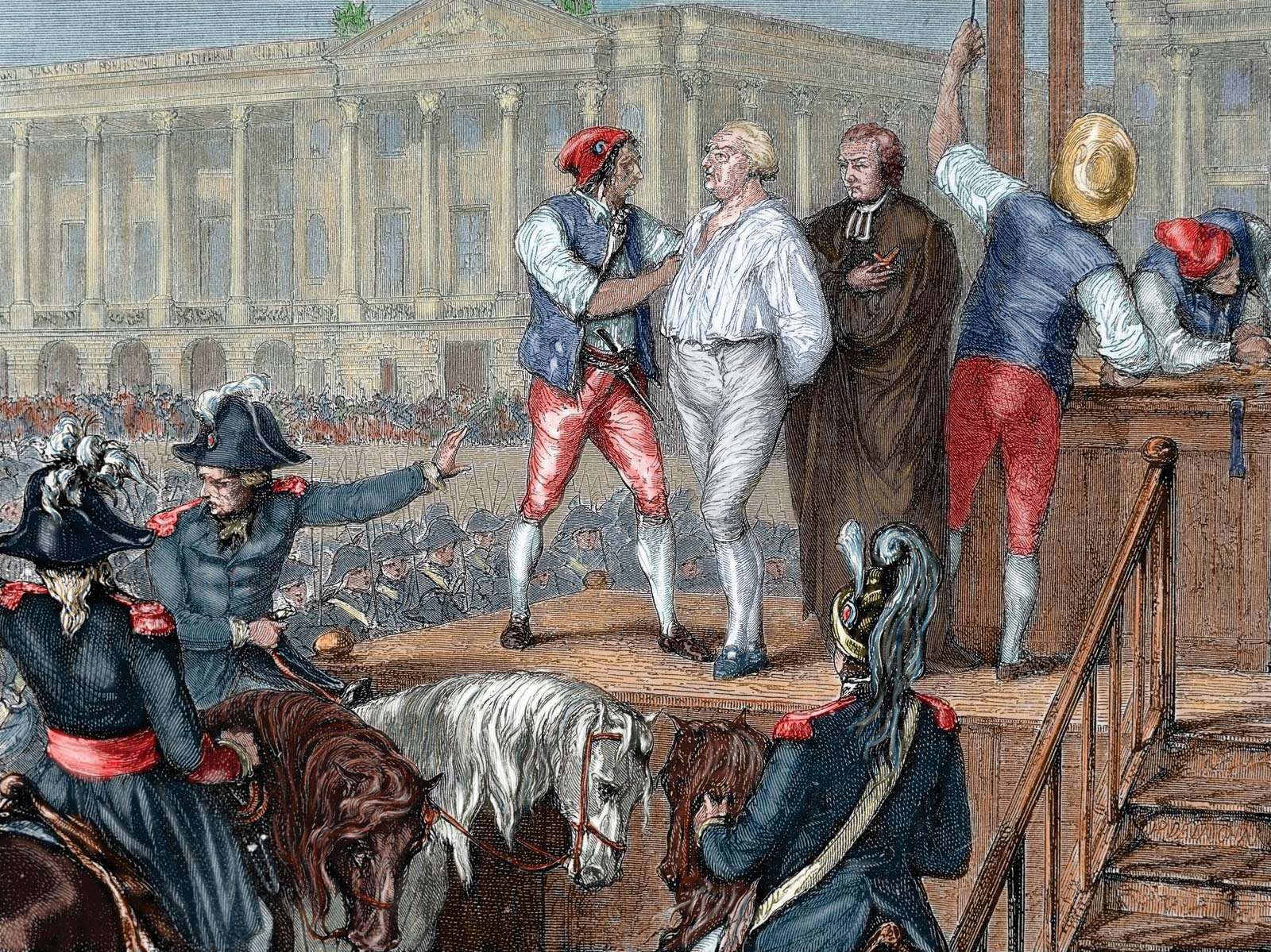The weeks between August 10 and the meeting of the Convention on September 21 were a time of extreme tension. The value of the assignats depreciated by 40 percent during August alone.
Jacobin propagandists, led by Jean Paul Marat (1743-1793), an embittered Swiss physician turned journalist, continually excited the people of Paris. Excitement mounted still higher when the news arrived that Prussian troops had invaded northeastern France. In the emergency, Danton, the minister of justice, won immortality by urging patriots to employ “boldness, more boldness, always boldness.”
In Paris, boldness took the form of the September Massacres, mass killings of supposed traitors and enemy agents made possible by the collapse of normal police authority. For five days, beginning on September 2, mobs moved from prison to prison; at each stop they held impromptu courts and summary executions. Neither the new Paris commune nor the national ministry could check the hysterical wave of killings.
The number of victims exceeded a thousand and included ordinary criminals and prostitutes as well as aristocrats and nonjuring priests, who were often innocent of the treason they were charged with. The September Massacres foreshadowed the terror to come.
On September 20 a rather minor French victory, grandly styled “the miracle of Valmy,” turned the enemy forces back from the road to Paris; more solid French successes in Belgium, Savoy, and the Rhineland followed in late 1792. Then the tide turned again, washing away the conquests of the autumn. By the summer of 1793 a half-defeated France faced a hostile coalition including almost every major power in Europe. An atmosphere of perpetual emergency surrounded the Convention.

